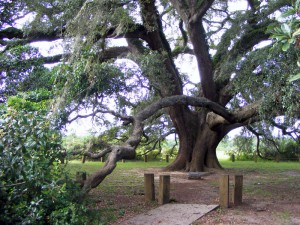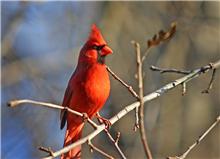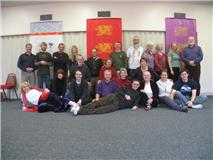Wednesday
Community Articles, Southern StatesA Pinch of Rice
By S. Marie Vernon
The lodge is cozy and comfortable with a huge fireplace that constantly invites us to “come sit by the fire.” It’s our Winter 2010-2011, Weekthun and Oryoki Retreat in North Alabama. Twenty three of us are here for the event with our teachers, Shastri Chuck Whetsell and Mary Whetsell. Most of us have come from Alabama, Georgia, and Florida — one young man is from as far away as Nova Scotia.
It’s my first silent retreat, and I’m pretty distraught about my Oryoki napkin. I’ve been cleaning my bowls with it for three days. I imagine, with horror, the varieties of germs that have taken it over. My retreat is ruined, but what can I do? I can’t just leave. That would mean failure in my discipline. I have to find a way to conquer this dreadful napkin.
The long hours of meditation and contemplative activities have gotten the better of me too. There is afternoon tea, the lhasang blessing and time to just be present. It sounds relaxing, but it’s not for me. Silence has removed my social mask. I feel fragile and vulnerable, like I need to get away from people.
I have to go to 7 am meditation, then Oryoki breakfast and lunch. I don’t actually have to go, but not going, also, means failure at discipline. Ok, so I’m going. But right after lunch I’ve decided to make an escape! I will run away, run deep into the forest and take refuge in nature, if only for a little while.
What an experience! The food is wonderful. Except for the napkin, I do love much about Oryoki. I love the simplicity of taking only what you need. I love how it is formal, ceremonious, graceful, and elegant, how the servers bow a lot with the food. They bow to the shrine, the leader and to each quadrant before serving. We chant and eat in silence. Mary describes the process as “crisp and precise.” I relate it to a chess game with only certain moves acceptable.
Dinner is a little different than breakfast and lunch. We offer pinches of rice to the higher and lower beings. After dinner, they are gathered by our servers and taken outside and given as offerings to the birds, animals and nature. At no time are dishes left for others to wash. We wipe them clean with our spatula and one of our napkins. Another napkin is used to tie up the bowls until our next meal.
I really want to reconcile my concerns about my Oryoki napkin. I recall how Buddhist monks and nuns have eaten this way throughout history. I recall blessing our bowls and napkins at the lhasang — how we chanted and passed them through the juniper smoke. I remind myself how millions of people do not have nourishing food or clean water, and probably don’t even have napkins. Feeling humbled I’m able to get through breakfast. At lunch, I recall it all again. But I also think to my self: If Oryoki gets any worse for me, I can always become a server and escape it that way.
Finally, lunch is over, and I can get out of here! The recent snow has melted. It’s still cold, but the sun is shining, and the walking trails look inviting. I can finally be alone to recharge my batteries.
I found just the right trail and hiked around until I felt exhausted. Then I sat down on a forest bench to clear my head from so much thinking. I sat just breathing before taking in the landscape. The woods were barren, not much to see. A few, small flowers and mushrooms were sprinkled here and there. A woodpecker pecked in the distance.
Soon I was mesmerized by a big oak tree. It had a face, eyes, bushy eyebrows, a nose, mouth, and a long-pointed chin. One branch, long like an arm, was pointing straight at me. I recognized this tree! It was visible from our meditation room. Up-close, it was much more intriguing. I observed it for the longest time and shifted into a meditative state just breathing — in and out, in and out, in and out — until my body and mind relaxed completely.
What would this wise old tree say if it could talk? I wondered. Or maybe the tree might ask me some questions like: “When will you put down your roots and be content to grow old and wise like me? When will you accept the boring, mundane and trivial for the value of its simplicity? When will you stop running away, learn how to weather storms, stand tall and firm, and wake up to your own nature? It is the same as mine. But you still don’t get that, do you?”
I continued to imagine what the tree might say: “What causes you to run away from people after just three days? Are you afraid of them — that they might reject the real you, that you might not be good enough? Kid, you’ve got to look deeply into your fear of rejection! Your creativity depends on it. And now, aren’t you ready to run away from me, because I’ve asked you these tough questions?”
“Yes! Yes! Yes!” I wanted to shout. But I didn’t because, at my age, I was amused by the tree calling me “kid.”
Leaves rustled. I turned and saw a brownish-gray squirrel with a huge bushy tail. He was nibbling an acorn. He jumped onto a stump and really got my attention as if to say, “Why don’t we explore the woods today? There’s an awful lot to see. After all, you’ve been sitting on that bench for a long time. I’ve been watching you.”
Next, a cardinal flew in close. “Well, Blue,” he seemed to say to the squirrel, “I see you’re still trying to be the tour guide.” Then he added sarcastically, “People get tired of trekking around the forest on foot? Eventually, they want to see the forest from a higher perspective — to see mountains, valleys, lakes and changing landscapes. That would be more fun than getting lost in the forest with you.”
The squirrel’s eyes bulged out, and his tail stood straight in the air! Chirping at the cardinal, he replied, “Red, you’re a smart-ass! I never get lost! You’re the one who’s lost. You’ve been lost for years! Who invited you here, anyway?” He threw an acorn at Red. The cardinal flew high into the sky, seeming to laugh as he went. He performed a few figure-eights, stopped in midair, then took aim and dive-bombed straight at the squirrel. Blue ran for cover, yelling all the way: “You arrogant, pompous, mean old bird……”
Wow, I’m really thinking today…
I looked back at the old oak tree, deciding to indulge in this imagined dialogue a bit longer. “Do you have a name?” I asked. The tree, to my delight, responded: “Most people just call me Mighty. That’s because I’m mighty big, mighty strong and mighty handsome, don’t you think?” He grinned and turned to give me his best pose. I grinned, too, at his humor. Then Mighty, said, “Well, Kid, I’m proud of you. You could have gone exploring with Blue. Exploring can be just another way to run away. Sometimes, it’s best to stay and listen to yourself. Blue is very good at that, too, when he’s not upset. Let him inspire you that way.”
He continued, “And, Red flies high and sings beautiful melodies. He’s an example for others to find their purpose and talent in life. Actually, finding one’s true purpose or artistic talent is the highest way to fly. When pursued without ego, it sets the heart, mind and soul free. When beings are free they give of themselves, assist where needed, and ask nothing in return. Then they become teachers and inspire the world.”
The squirrel reappeared, sporting a combat-helmet and a high-powered scope. He had a pouch of acorns, and he was looking for Red! The cardinal was still around too, flying high up, diving down, disappearing, and surfacing again in different places.
“Blue and Red still succumb to their egos, regardless of their intelligence, awareness and talents. Their frustrations are of their own making. They blame each other for their lack of understanding and control. They engage in warfare to avenge the harm done to them. Not seeing clearly, they harm themselves and then project the blame out there onto others. Eventually, they will see that ego fuels the warfare.”
Yes, my Shambhala teachers talk about this kind of warfare, I thought.
“Eventually, they will see there is only stillness and peace to be claimed. Once peace is experienced, they can find their song of freedom and learn to fly with all their hearts, minds and souls. Then even squirrels can fly and birds can truly see from a higher perspective. In time, Kid, you’ll see these things and claim your freedom too.”
Hmmmm, Mighty sounds more and more like my Shambhala teachers.
Then, the old oak tree seemed to ask, “Hasn’t that time come for you, already, Kid?” His question made me sad. I wasn’t sure I would ever be able to fly or claim my freedom. So far, each time I tried, I failed. I looked down and thought, Yes, Mighty, it’s time. Maybe it really is that time for me. Thinking of time, I realized that the 3:00 meditation was about to start.
I stood to leave. Mighty became expressionless. Even his long arm was pointing at someone else who had found my trail and was coming toward us. Walking to the lodge, I looked back to say good-bye and to ask Mighty one more question: “Buddhas come in all varieties, don’t they? People, animals, plants, trees, you’re all buddhas, aren’t you?” He seemed to answer with a slight grin and the quickest little wink.
I ran back to the lodge. Getting close, a wind swirled around me and brought Mighty’s voice into my mind. It seemed to echo through the forest, “On behalf of all higher and lower beings, we thank you for the rice.”
My afternoon meditation was great, except I just couldn’t stop thinking.
Looking out the window, Mighty looked small, but he had become larger than life to me. Tears formed as I looked at him, a mighty old oak tree, able to weather any type of storm. I admired his strength and endurance, his ability to stand tall. And I wanted to fly like the cardinal, but wondered if I ever would. I felt weak; not good enough as the writer I had aspired to be. I felt almost as frustrated as Blue and, yet, really tired of my internal struggle. I started crying and couldn’t stop. I’d never before allowed myself to feel the extent of this painful realization. My stories might never be written. At a certain point, I had to leave the meditation hall. Eventually, my tears and trembling stopped and an amazing feeling of acceptance and calm seemed to wrap around me. I felt I was ok and, warmly, held by a part of myself and the universe, even if I never wrote another word. Finally, I felt free from imagined criticisms and unrealistic expectations of myself.
When I returned, it was time for Oryoki dinner. I participated with a new perspective and appreciation. I sat straighter, paid attention, and chanted diligently. I felt a surge of appreciation for my teachers, my meditation group, the wonderful food, the Oryoki set, and even my napkins. Unfolding the napkins, I thanked the buddhas of the forest I had encountered that afternoon.
The servers seemed to be even more graceful and elegant. After dinner, they returned to collect our rice offerings. My two pinches were huge compared to the others. The server raised an eyebrow when he saw mine. I smiled softly and looked away, pretended not to notice his inquiry.
I had to thank that old oak tree with a mighty pinch of rice.
Dedicated to my all my teachers, especially Shastri Chuck Whetsell and Mary Whetsell.























Apr 1, 2011
Reply
Aw-shucks kitten
I’m only good for laughter and sarcasm :)
but this is a nice creation and kudos
Mar 26, 2011
Reply
Jaki Good, is an amazing photographer. Jaki, I love all your work and I especially appreciate your photo of Red, the cardinal, in my story. He is a very important character that helps this story unfold. Thank you, so very much, Jaki. View more of Jaki’s art at http://www.jakigoodphotography.com.
Mar 26, 2011
Reply
Hi Tommy,
Thanks to you and Treehugger.com for my photo of Blue. He was central to this storys’ conflict, a character that I love so much. Actually, a part of myself that I rarely show to the world because the world, typically, doesn’t want to see our anger and frustration. In shame, I’ve kept Blue hidden, but now that he is out maybe he can be loved too, or at least, be understood, accepted and shown some compassion for his limitations.That’s all any of us really need.
Mar 26, 2011
Reply
Thank you, Esther. I did try to cocoon the experience inside a fun story that I hoped would keep a readers’ attention.
Mar 24, 2011
Reply
I love the Oryoki Story- it’s so imaginative and well written.
And at the same time portrays it all the typical klesha activity
we go through at a Dathün.
Thank you for sharing!
Mar 24, 2011
Reply
Very nice